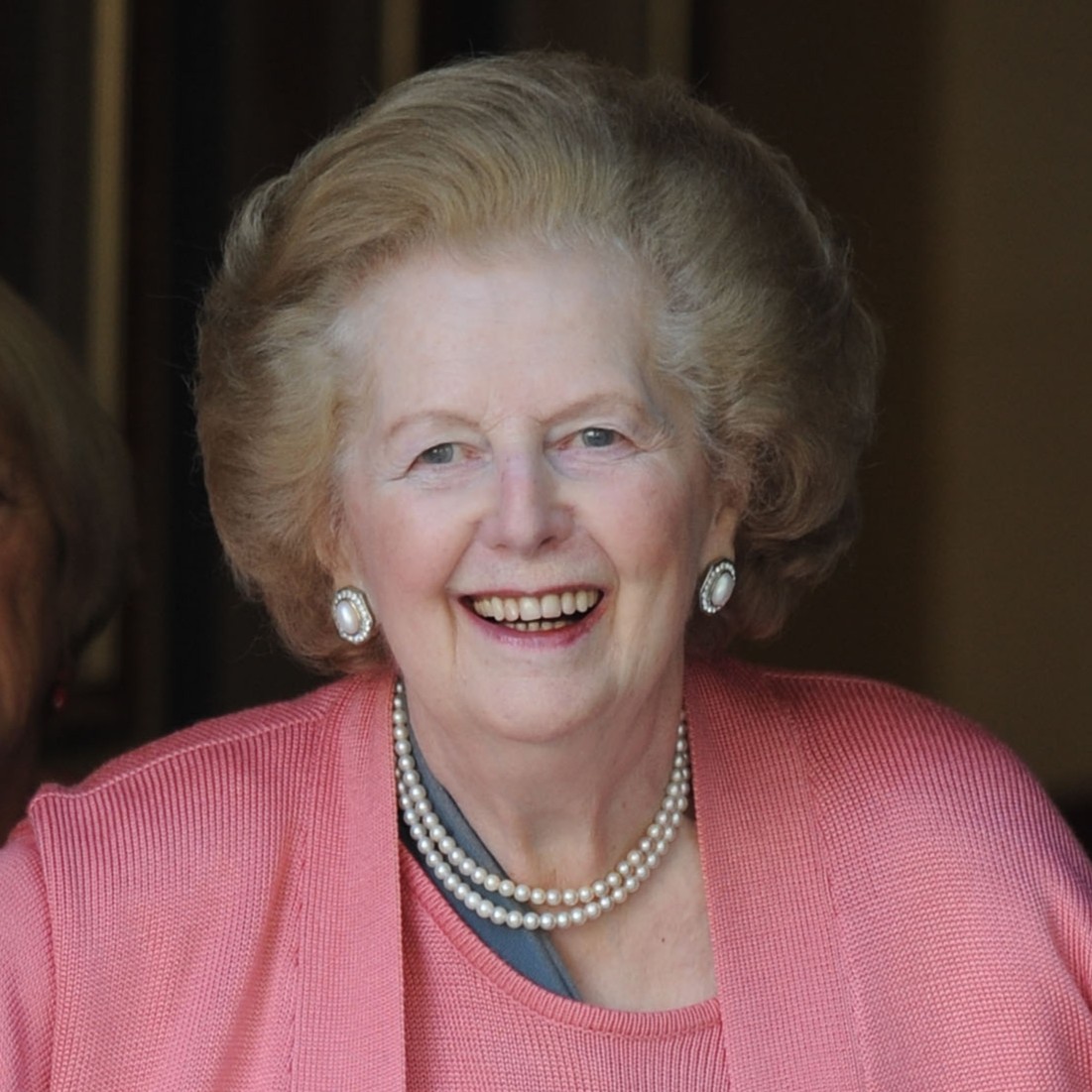Margaret Thatcher
Articles
Historical Quotes
View more from News & Articles or Primerus Weekly

By Tom Kirvan
Known during her prime minister reign as the “Iron Lady,” Margaret Thatcher ruled Great Britain for 11 years during a tumultuous time where she was viewed by some as a “savior” and by others as a “heartless tyrant.”
In short, Thatcher was seen as a divisive figure by most historians who nevertheless ranked Great Britain’s first female prime minister as a political trailblazer who raised the standing of the country abroad.
Thatcher rose to power in the late 1970s when the Conservative Party claimed victory in the House of Commons on the strength of promises to champion private enterprise and to reassert Great Britain’s standing as a global economic and military power. It didn’t take long for her to be tested when Argentina’s military junta seized the Falklands Islands from Britain in 1982, sparking a 10-week undeclared war that the British won decisively.
The military triumph cemented Thatcher’s power on a global stage while also elevating her influence domestically as she tried to revive a faltering economy by keeping labor unions in check.

Thatcher was born in 1925, the daughter of a grocer and Methodist preacher who eventually became a mayor. Her father’s involvement in local politics helped motivate the Oxford-educated Thatcher to seek a parliamentary seat in 1950, a bid that proved unsuccessful but did earn her nationwide publicity as the youngest female candidate in the country. Nine years later, after yet another unsuccessful campaign for public office, Thatcher won election to Parliament in 1959, joining the Conservative Party’s cabinet as education secretary in 1970.
It was during that role when Thatcher uttered the comment, “If you want something said, ask a man; if you want something done, ask a woman.”
While her frankness endeared her to many Brits, such candor was also seen as a political liability, which became clear when she helped impose a controversial “community charge” tax that sparked riots across London in 1990. Eight months after the uprising, Thatcher was ousted as prime minister, after which she became a best-selling author and highly sought-after public speaker.
Thatcher suffered from dementia in her final years, a decline captured in the 2011 movie “Iron Lady” starring Meryl Streep. On April 8, 2013, Thatcher died of a stroke at age 87. Her funeral service took place nine days later at St. Paul’s Cathedral, a memorial attended by Queen Elizabeth II among a host of other dignitaries.
She left behind such verbal treasures as: